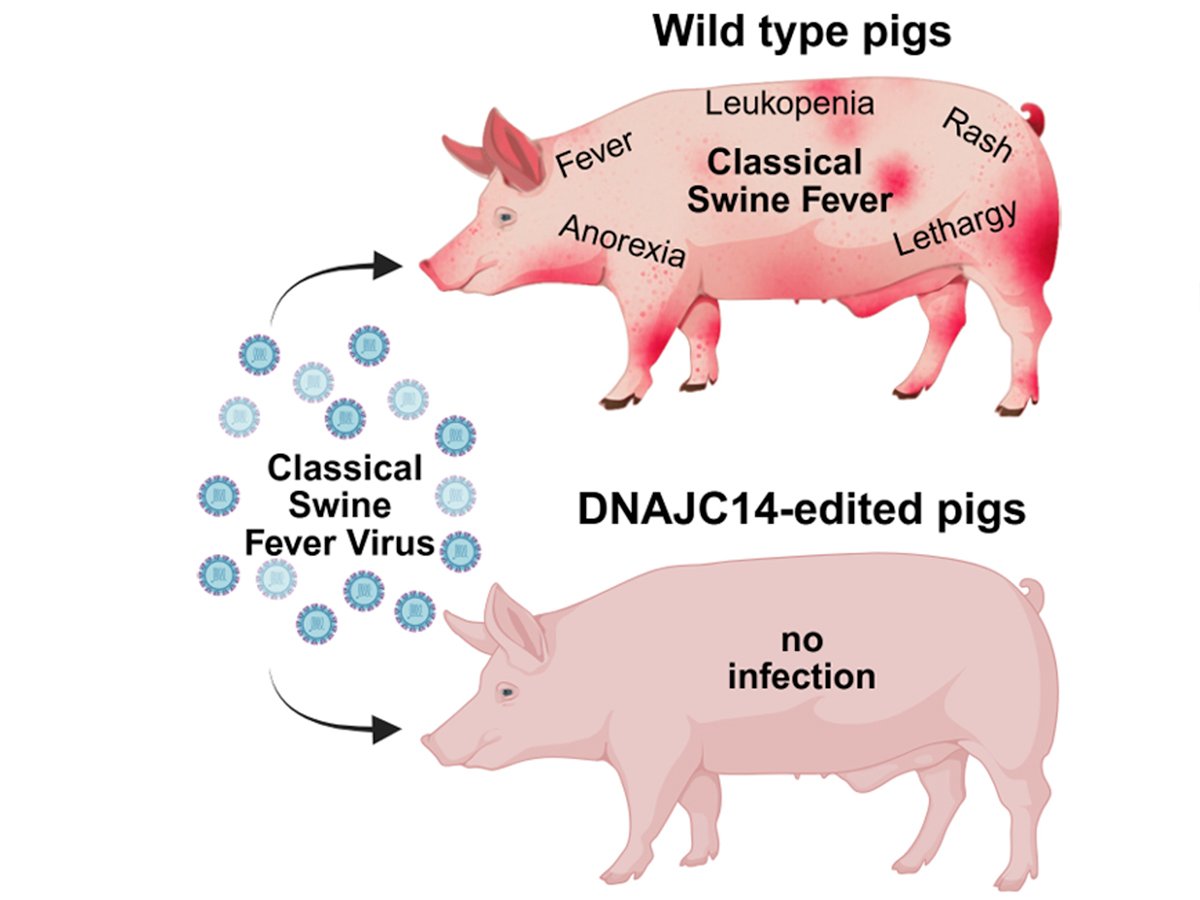The issue of animal welfare standards on farms is not as simple as critics like to believe, says Tim Lambert, chief executive officer of Egg Farmers of Canada.
“I’d like to tell you that the issue is black and white but that’s not true at all,” he told MPs on the House of Commons agriculture committee last week.
Egg Farmers is an example of the complexity, he said.
Among its 1,000 farmer members, the group represents the gamut of egg production systems — organic, free-range, omega 3 and conventional cage housing among others.
Read Also

Gene edited pig resistant to classical swine fever
British scientists have discovered a gene edit that could provide resistance to classical swine fever in pigs and Bovine Viral Diarrhea in cattle
“It really puts us at something of a disadvantage in the public dialogue with animal rights groups because simply put, we’re not going to go out publicly and point out any disadvantages and strengths of the different systems. The activists tend to take a one-sided view that all cages are bad for layer production. That’s a really inaccurate portrayal of the reality of the situation.”
Lambert was one of several witnesses during committee hearings to argue that farmers want good animal welfare systems because it is in their economic interests as well as part of their respect for animals.
“A very key point that somehow gets lost in some of the debate is birds that aren’t healthy aren’t happy, they aren’t productive,” he said. “Therefore, the farmers have very much a vested interest in the welfare of their birds to ensure that they’re productive.”
Later during the meeting, northern British Columbia Conservative MP Bob Zimmer pursued the point. Is there any benefit for farmers to cut corners that compromise animal health?
“People involved in livestock agriculture are almost universally people who care about animals,” Lambert said. “That’s why they do it. They are always concerned with the welfare and health of their birds and keeping those birds healthy, safe, well-fed, appropriately watered and managing disease.”
K. Robin Horel, president of the Canadian Poultry and Egg Processors Council, said the benefits of healthy animals move through the production chain.
“Not only is it economically advantageous for the farmer to make sure the birds are healthy and well-treated, once the product gets to the processing plant it goes through inspection and healthy birds get through, non-healthy birds don’t go through,” he said.
Chicken Farmers of Canada executive director Mike Dungate told MPs that while national industry animal care codes are voluntary, seven provinces have made them mandatory, all farmers are audited annually and 80 percent of Canadian chicken farmers have been certified to be adhering to the program.














